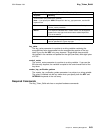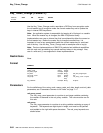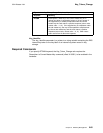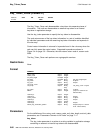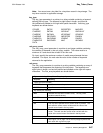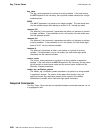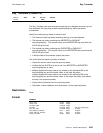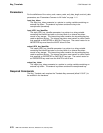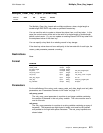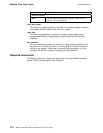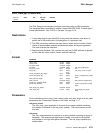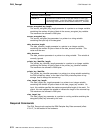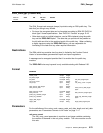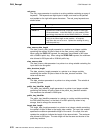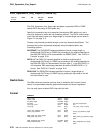
CCA Release 2.54 Multiple_Clear_Key_Import
Multiple_Clear_Key_Import (CSNBCKM)
Platform/
Product
OS/2 AIX Win NT/
2000
OS/400
IBM 4758-2/23 X X X X
The Multiple_Clear_Key_Import verb multiply-enciphers a clear, single-length or
double-length DES DATA key under a symmetric master-key.
You can use this verb to create an internal key-token from a null key token. In this
case, the control vector will be set to the value of a single-length or double-length
default control-vector. Or, you can update an existing internal DATA key-token with
the enciphered value of the clear key.
You can specify a key label of an existing record in key storage.
If the clear-key value does not have odd parity in the low-order bit of each byte, the
reason_code parameter presents a warning.
Restrictions
None
Format
CSNBCKM
return_code Output Integer
reason_code Output Integer
exit_data_length In/Output Integer
exit_data In/Output String exit_data_length bytes
rule_array_count Input Integer zero or one
rule_array Input String
array
rule_array_count * 8 bytes
clear_key_length Input Integer 8 or 16
clear_key Input String clear_key_length bytes
key_identifier Output String 64 bytes
Parameters
For the definitions of the return_code, reason_code, exit_data_length, and exit_data
parameters, see “Parameters Common to All Verbs” on page 1-11.
rule_array_count
The rule_array_count parameter is a pointer to an integer variable containing
the number of elements in the rule_array variable. The value must be zero or
one for this verb.
rule_array
The rule_array parameter is a pointer to a string variable containing an array of
keywords. The keywords are eight bytes in length, and must be left-justified
and padded on the right with space characters. The rule_array keywords are
shown below:
Chapter 5. DES Key-Management 5-71



